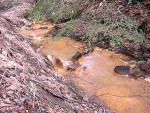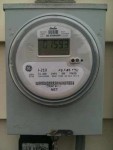The worst bill to hit the ground this week was H.B. 2574/S.B. 423, “Amending the Aboveground Storage Tank Act.”
It should read “Gutting the Aboveground Storage Tank Act.” The Aboveground Storage Tank Act was created by last year’s landmark S.B. 373, which passed both houses unanimously.
Here is the WV Rivers Coalition’s excellent summary of H.B. 2574/S.B.423 (which you can download here as a one-page “talking points” doc):
1. It ignores DEP’s risk-based rule. The bill takes no notice of DEP’s Proposed AST Rule, which was developed with extensive public input from industry and citizens as required by SB 373. The rule divides tanks into three levels and requires more stringent protections for tanks that present the highest risks.
2. It excludes almost all tanks from regulation. Only 90 of the roughly 50,000 registered tanks would still be subject to strict standards under the AST Act. Exclusions include, among others, all tanks used by the oil and gas industry. Freedom Industries would have been excluded from key requirements of the Act.
3. It limits DEP’s ability to collect fees to properly administer the program. Fees could no longer be collected to maintain and oversee the registration program, and annual fees would no longer be collected. Further, fees for the Protect Our Water Fund would be limited.
4. It weakens inspection requirements. DEP would no longer be required to conduct annual inspections of tanks in ZCCs, and owners/operators would only need to “evaluate” their tanks once, unless new rules are promulgated requiring future “evaluations.” Unqualified people could conduct these “evaluations.”
5. It removes protections for drinking water systems that draw water from groundwater. The bill strikes the definition of “source water protection area” and excludes consideration of tanks in these areas that could contaminate groundwater intakes.
6. It undermines the ability of water utilities to write effective source water protection plans. The bill restricts the sharing of critical information with water utilities.
7. It hides key information from the public. The bill restricts the sharing of information with the general public and provides draconian penalties for the release of such information. Further, it removes the requirement to notify the public of chemical spills, releases, or related emergencies.
8. It significantly weakens planning for spill response and prevention. Spill Prevention and Response Plans will no longer be required for many sites. Existing plans at these sites, while somewhat similar to SPRPs, would not need to be submitted to DEP and would not be available to the public.
9. It strips important provisions that hold AST owners and operators accountable. AST permits are no longer required, unless DEP institutes a new rulemaking process. Fees no longer need to be paid in order for a tank to be used. Penalties are weakened. The ability of DEP to revoke AST registrations is weakened. Individual NPDES permits are no longer required for facilities with ASTs in ZCCs, and DEP no longer has the ability to require individual NPDES permits for other facilities in ZCCs. Important tank-related provisions no longer become enforceable conditions in NPDES permits.
* * *
How you can help: Each chamber’s bill is single referenced to the Judiciary committee. Please contact members of both committees and tell them you are appalled that the legislature would repeal the drinking water protections that were passed unanimously last year. Contact information for Senate Judiciary committee members can be found here, and for House Judiciary committee members it’s here (scroll down to see a list of e-dresses that you can copy and paste into the “To” field of a single e-mail).
A public hearing has been requested in the House; keep an eye out for the time and place. Among other avenues, we’ll tweet it from @WVECouncil.
Additional reading:
Within just about 48 hours of the bill’s introduction, Downstream Strategies and the WV Rivers Coalition had put together a report called “Impacts of HB 2574 and SB 423 on the number of tanks regulated by the Aboveground Storage Tank Act.” You can read it here.
Ken Ward Jr.’s Gazette articles are here and here.
Bill to Cut Drinking Water Protections Provokes Fury (Public News Service, Feb. 6)
First priority is keeping adequate water protections (Herald-Dispatch editorial)









